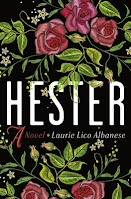I received this book for free from Netgalley. That did not influence this review.
I’ve been following the story of Olav Audunsson (also known as The Master of Hestviken) in the new translation of Sigrid Unset’s masterpiece set in 13th-14th century Norway. (The translator is Tiina Nunnally.) The story is told in four volumes. I’ve read Book I: Vows and Book II: Providence, and reviewed them previously. The current book, Book III, is called Crossroads. I highly recommend reading them in order or the power of the story will be lost.
Book III continues seamlessly from where Book II ends. Olav is master of the profitable estate called Hestviken. He’s still young (late thirties), handsome, and healthy. However, he grieves the loss of his wife, Ingunn, who was the love of his life, despite their terrible experiences apart and together. Olav has resolved never to remarry or take a mistress because he still feels bound to her.
He has an heir, Eirik, who he has claimed as his own, although the child was fathered by a man who raped Ingunn. Eirik is growing to manhood. Although the reader can have flashes of sympathy for him, he’s not a likable boy. He’s given to whining, boasting, and lying. However, he senses that his father doesn’t like him – which is true – and that makes his desperate personality more understandable. Olav has never let on to anyone that Eirik is not his biological child. Even to himself, he accepts Eirik as his son. But there is also the question of his natural son, Bjorn, born to Torhilde, the woman who was once the housekeeper of the estate. Bjorn is a beautiful boy and Olav wishes he could have more to do with him than he does.
Basically, Olav is a hot mess. He’s always been a deeply religious man, but he’s oppressed by the weight of his sins and wallows in conflicted feelings of unworthiness. He is deeply connected to his estate, but is bored by it. He mourns Ingunn, but still feels attracted to Torhilde. He leaves Hestviken for a short commercial voyage to London, during which he nearly sleeps with a very young married woman who reminds him of Ingunn. He has a religious experience and seriously considers becoming a monk. Yet throughout, he is incapable of making a significant change in his life and continues muddling along.
Eventually, war comes to his corner of the world and he sets off to take part. This reminds him of his soldiering days in his youth. He exhilarates in battle. He’s severely wounded. Good men are lost, but he survives and returns home. One expects that the clarity he felt in battle will not remain in peacetime, and he will return to his indecisiveness and wallowing.
It’s difficult to explain why this book is so compelling. Olav is not a particularly admirable character. In many ways, he’s rather weak. Still, the author gives such a convincing portrait of a medieval Norwegian “everyman” that I’m hooked. There is one more part to this quartet. I’m anxious to see how Olav’s story ends.

























